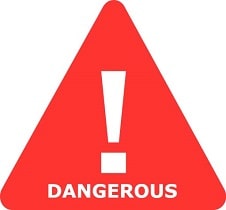
Silenor | Doxepin Hydrochloride Tablet while Breastfeeding
What is Silenor | Doxepin Hydrochloride Tablet used for?
What are the risk associated with Silenor | Doxepin Hydrochloride Tablet usage while breastfeeding? What precautions shall I take while using it in breastfeeding?

8.3. Nursing Mothers Doxepin is excreted in human milk after oral administration. There has been a report of apnea and drowsiness occurring in a nursing infant whose mother was taking the higher dose of doxepin used to treat depression. Caution should be exercised when Silenor is administered to nursing women.
Silenor | Doxepin Hydrochloride Tablet Breastfeeding Analsys
Doxepin while Breastfeeding
DangerousSedative effect and respiratory arrest have been described.
Silenor | Doxepin Hydrochloride Tablet Breastfeeding Analsys - 2
Doxepin while Breastfeeding
CAS Number: 1668-19-5
Because of its sedating potential, active metabolite, presence in infant serum, two reports of adverse effects in breastfed infants, and only one report of use without apparent adverse reactions, doxepin is a poor choice and other agents may be preferred, especially while nursing a newborn or preterm infant. If doxepin is required by the mother of an older infant, it may not a reason to discontinue breastfeeding, but the infant should be monitored carefully for excessive sedation, and adequate weight gain. Maternal use of topical doxepin cream is unlikely to pose a problem for a breastfed infant as long as it is applied away from the breasts so that the infant cannot ingest the drug directly.

I am nursing mother and I have already used Silenor | Doxepin Hydrochloride Tablet, what should I do?
You should immediately inform your health care provider about Silenor | Doxepin Hydrochloride Tablet usage and your breastfeeding interval after usage of
I am nursing mother and my doctor has suggested me to use Silenor | Doxepin Hydrochloride Tablet, is it safe?
Please double check with your doctor if he is aware of your breastfeeding stratus, Ask your doctor if there is any safe alternative of Silenor | Doxepin Hydrochloride Tablet. Check with your doctor if you shall temporally stop breastfeeding. You may go for second opinion as well. Still after all of this if your doctor still recommends Silenor | Doxepin Hydrochloride Tablet then go for it as they have access on more detailed medical and scientific information and they understand your individual medical situation much better.
If I am using Silenor | Doxepin Hydrochloride Tablet, will my baby need extra monitoring?
Extreme level of monitoring required as Silenor | Doxepin Hydrochloride Tablet could be dangerous for kid.
Who can I talk to if I have questions about usage of Silenor | Doxepin Hydrochloride Tablet in breastfeeding?
US
National Womens Health and Breastfeeding Helpline: 800-994-9662 (TDD 888-220-5446) 9 a.m. and 6 p.m. ET, Monday through Friday
UK
National Breastfeeding Helpline: 0300-100-0212 9.30am to 9.30pm, daily
Association of Breastfeeding Mothers: 0300-330-5453
La Leche League: 0345-120-2918
The Breastfeeding Network supporter line in Bengali and Sylheti: 0300-456-2421
National Childbirth Trust (NCT): 0300-330-0700
Australia
National Breastfeeding Helpline: 1800-686-268 24 hours a day, 7 days a week
Canada
Telehealth Ontario for breastfeeding: 1-866-797-0000 24 hours a day, 7 days a week
